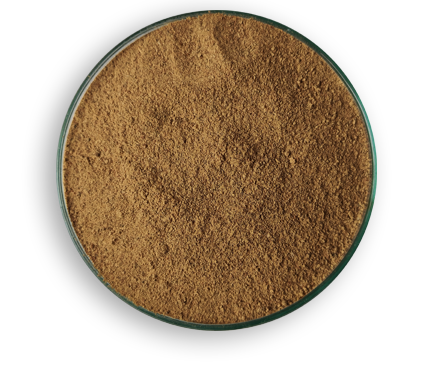

Cassia meal, also known as cassia tora meal, is a by-product of the cassia tora seed extraction process.

Cassia Tora Meal is a high-protein feed ingredient, 100% Natural, Organic, Non GMO product for manufacturing for Cattle feeds, Animal feeds, Aqua Feeds, Horse feeds, Poultry Feeds, etc.
Cassia Tora meal is a by-product formed during processing of Cassia Tora seeds into cassia tora splits. The extracted Cassia Tora meal is further processed by toasting at a high temperature to remove Trypsin Inhibitor, thus improving its nutritive value.
Cassia tora is a plant that is native to India, and its seeds are commonly used in various industrial applications. The seeds are first crushed to extract the oil, and the remaining seed cake is then ground into a fine powder, which is called cassia tora meal.
Cassia tora meal is a high-protein feed ingredient that is commonly used in animal feed formulations. It contains about 30-35% protein and has a well-balanced amino acid profile. It is particularly useful in poultry and swine diets due to its high lysine content.
Processed Cassia Tora meal can be used either in conjunction with other feed stuffs or by itself, as it is a complete nutritional feed. As they are processed through high-temperature toasting, its quality remains intact. Because of its excellent thickening properties, it is one of the most used products in producing wet canned foods for pets.